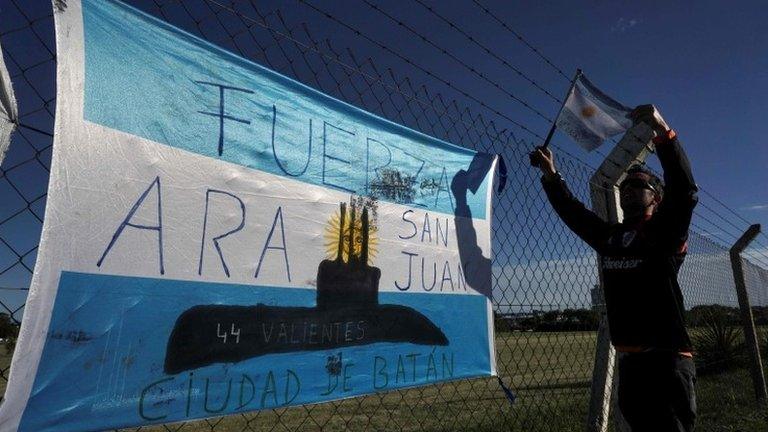Argentina missing sub: Water entered snorkel causing short circuit
- Published
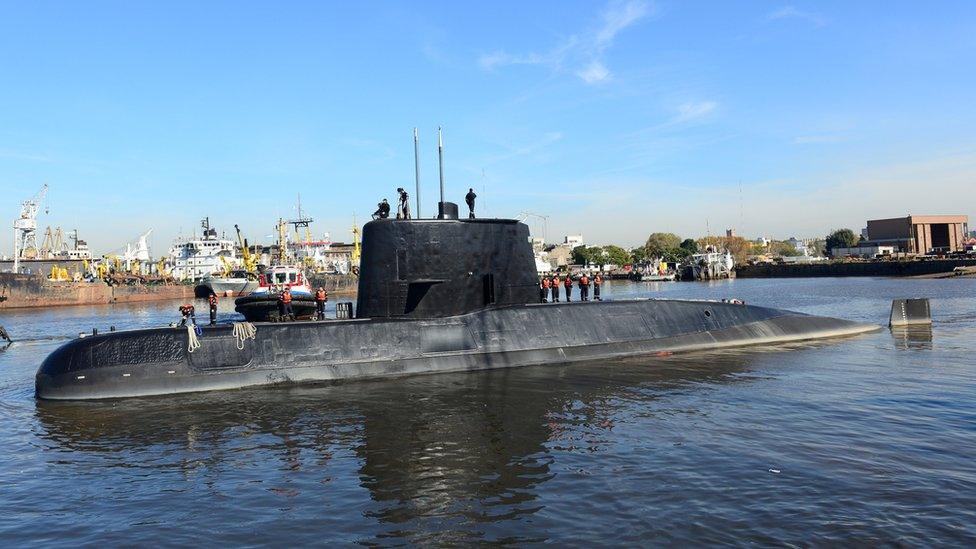
The ARA San Juan has a snorkel through which it can take in oxygen when submerged
The Argentine navy says that before its San Juan submarine with 44 crew on board went missing on 15 November in the Atlantic Ocean, the vessel's captain reported that water had entered the sub through a snorkel.
A navy spokesman said that the water had hit one of the batteries causing it to short circuit.
He said that the affected circuit was isolated and the sub continued to sail.
The search for the San Juan has so far failed to yield its location.
Navy spokesman Enrique Balbi told reporters that water had entered the sub's snorkel, which can be used to take in air from above the surface when the submarine is submerged.
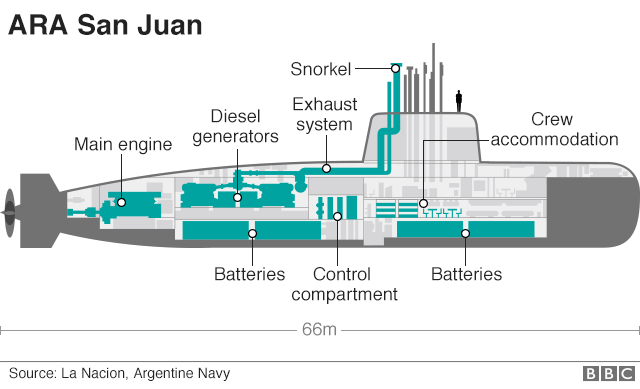
The saltwater dripped onto a battery tray in the prow, causing the battery to short circuit and to smoulder, Capt Balbi said.
Argentine daily La Nación had reported as early as last week that water dripping through the snorkel had caused a short circuit, external but the information was not officially confirmed until Monday.
The crew "had to isolate the battery and continue to sail underwater toward Mar del Plata [naval base], using another battery in the stern," Capt Balbi said.
Missing without a trace
But the ARA San Juan never arrived at its base.
The navy has in the past said that its last contact with the vessel was at approximately 07:30 (10:30GMT) on 15 November, at which point its captain had reportedly confirmed that the crew were well.

The crew of the ARA San Juan comprises 43 men and one woman
Argentine television channel A24 on Monday revealed the text of what it said was the last message sent by the captain of the San Juan.
It matches the information given by the navy on Monday but gives the time of the last communication as 08:52 (11:52GMT).
The message as broadcast by A24 reads: "Sea water entering through the ventilation system into battery tank number 3 caused a short circuit and the early stages of a fire in the battery bank. Batteries in the prow out of service. Currently submerged and operating with divided circuit. Crew OK, will keep informing."
Search continues
An international search mission is under way but so far no trace of the sub has been found despite the deployment of 4,000 personnel from more than a dozen countries.
Eight days after the sub vanished, the Vienna-based Comprehensive Nuclear Test-Ban Treaty Organisation said that it had detected a noise a few hours after the sub's last contact.
The body, which operates a network of listening posts to monitor nuclear explosions, said that there had been a "hydro-acoustic anomaly" about 30 nautical miles (60km) north of the sub's last-known position at 10:31 (13:31GMT).

The Argentine navy said it could have been the sound of the submarine imploding.
News of the possible implosion has hit relatives of the missing crew members hard.
Some are still holding out hope that the submarine may not have imploded and that its crew were able to replenish the sub's oxygen supply, but an increasing number fear their loved ones are dead.
"There is no way they are alive," the wife of crew member Germán Suárez said.
President Mauricio Macri has ordered an investigation into the sub's disappearance and the search for it continues.
- Published26 November 2017

- Published23 November 2017
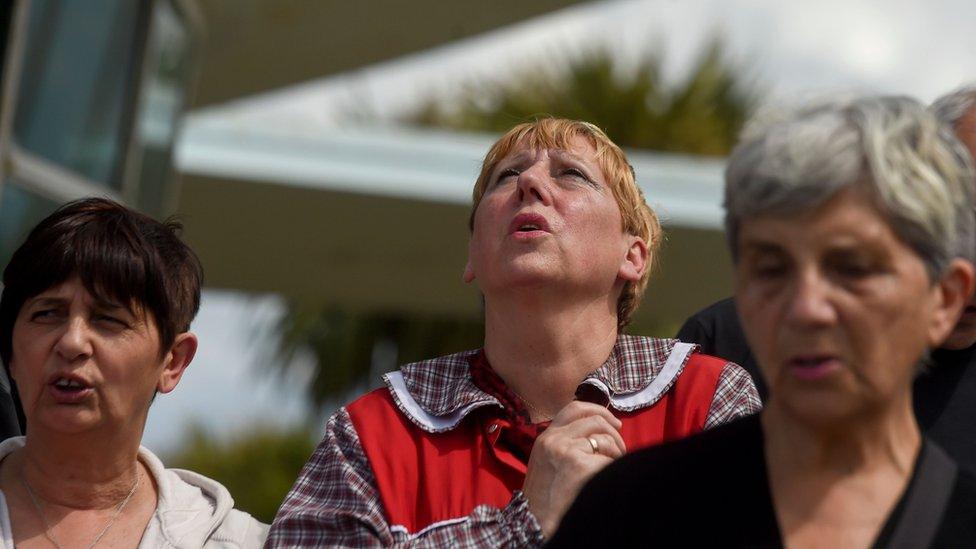
- Published21 November 2017
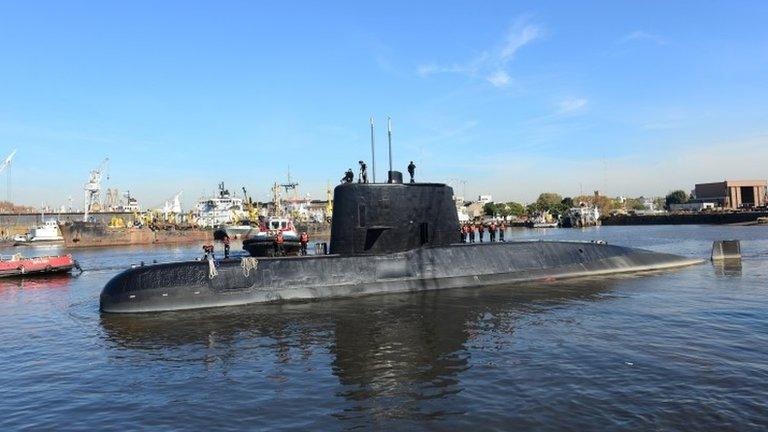
- Published22 November 2017
